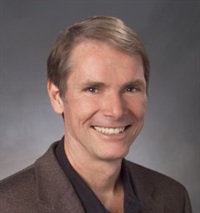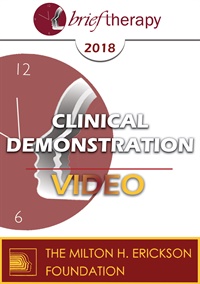BT18 Clinical Demonstration 08 - Transforming Belief Barriers - Robert Dilts
Credit Available - See Credits tab below.
Total Credits: 1.0 including 1.0 A.P.A.
- Average Rating:
- Not yet rated
- Topic Areas:
- Clinical Demonstrations | Belief Systems | Brief Therapy | Resources
- Categories:
- Brief Therapy Conference | Brief Therapy Conference 2018 | Online Continuing Education
- Faculty:
- Robert Dilts, BA
- Course Levels:
- Master Degree or Higher in Health-Related Field
- Duration:
- 1:00:44
- Format:
- Audio and Video
- Original Program Date:
- Dec 08, 2018
- License:
- Never Expires.
Description
Description:
"Belief barriers" are beliefs or assumptions that interfere with or undermine our motivation and progress toward the successful achievement of our goals. Many such barriers will emerge for clients during brief therapy. Therapists need to have the skill to create “belief bridges” that get over or bypass limiting beliefs and belief barriers, and ultimately create the possibility to transform them. This demonstration will show how to identify a belief barrier and help create a "belief bridge" that reconnects the client to key resources and shifts their focus to a broader perspective.
Educational Objectives:
- Describe the structure of belief barriers and belief bridges.
- Present the key steps for creating a belief bridge that allows a client to successfully transform a belief barrier.
- Demonstrate how to identify and address a limiting belief and create a belief bridge that reconnects a client to his or her deeper resources.
*Sessions may be edited for content and to preserve confidentiality*
Credits
1.0 credits available.
The Milton H. Erickson Foundation, Inc. is approved by the American Psychological Association to sponsor continuing education for psychologists. The Milton H. Erickson Foundation, Inc. maintains responsibility for this program and its content.
THE MILTON H. ERICKSON FOUNDATION Policy on Disclosure
The Milton H. Erickson Foundation is proud of the conferences and other
educational opportunities it sponsors, taking care that the conduct of
these activities conforms to the standards and principles of behavioral
and medical sciences, thus ensuring balance, independence, objectivity
and scientific rigor in all individually sponsored or jointly sponsored educational
activities.
All faculty members participating in a sponsored activity, and those who
review and therefore are in control of content, are requested to disclose
any relevant financial relationship prior to the CME activity, including but
not limited to specific commercial interests, financial remuneration received
by faculty member or spouse, and what role or activity was performed
for this remuneration. If a conflict of interest exists as a result of
a financial relationship it will be resolved prior to the activity. A faculty
member will not be allowed to present if the conflict is not or cannot be
resolved.
Faculty

Robert Dilts, BA Related Seminars and Products
Robert Dilts, has been a developer, author, trainer and consultant in the field of Neuro-Linguistic Programming (NLP) - a model of human behavior, learning and communication - since its creation in 1975 by John Grinder and Richard Bandler. A long time student and colleague of both Grinder and Bandler, Robert also studied personally with Milton H. Erickson, M.D., and Gregory Bateson.


